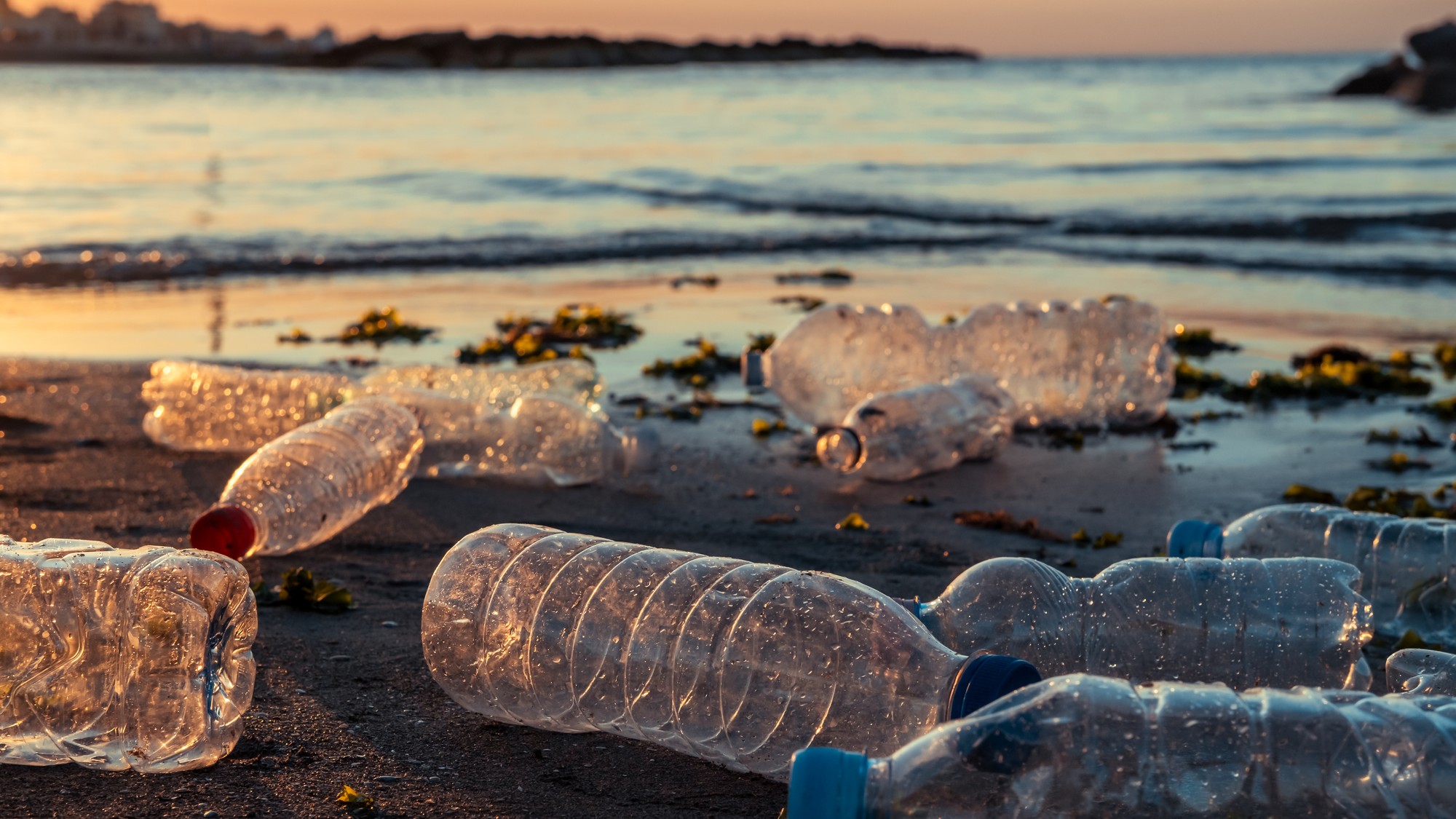Could bacteria solve the world's plastic problem?
Scientists are genetically engineering bacteria to break down plastic


A free daily email with the biggest news stories of the day – and the best features from TheWeek.com
You are now subscribed
Your newsletter sign-up was successful
Plastic pollution is a growing problem that's impacting ecosystems globally. The presence of so much plastic has also caused microplastics — plastic particles no more than one-fifth of an inch large — to infiltrate the world around us, where they've been found in the human body, a sealed-off cave and even the clouds. Unfortunately, the health implications of microplastics — described by researchers as "time bombs," according to Phys.org — are still largely unknown. But the good news is there may be a new solution to this pervasive pollution: bacteria.
How big is the plastic problem?
The world produces over 400 million tons of plastic waste each year, according to the United Nations. The U.S. alone produces 42 million metric tons of plastic waste yearly. This is equivalent to 287 pounds of waste per person, according to a report by the National Academy of Sciences. "Every day, the equivalent of over 2,000 garbage trucks full of plastic is dumped into our oceans, rivers and lakes," said U.N. Secretary-General Antonio Guterres.
Most plastic waste is single-use plastic, which can end up polluting ecosystems on land and in the ocean. Currently, 40% of the world's ocean surface is covered in billions of pounds of plastic. This material is expected to outweigh all the fish in the sea by 2050, per the Center for Biological Diversity. The pollution has been found in marine animals like sea turtles and is threatening a number of other species. Microplastics have also been found all over the globe both in organisms and in ecosystems, raising a variety of health concerns.
The Week
Escape your echo chamber. Get the facts behind the news, plus analysis from multiple perspectives.

Sign up for The Week's Free Newsletters
From our morning news briefing to a weekly Good News Newsletter, get the best of The Week delivered directly to your inbox.
From our morning news briefing to a weekly Good News Newsletter, get the best of The Week delivered directly to your inbox.
In addition, "plastic is made from fossil fuels," Guterres remarked. "The more plastic we produce, the more fossil fuel we burn and the worse we make the climate crisis." Because of these implications, countries like England have opted to institute single-use plastic bans. "We must work as one — governments, companies and consumers alike — to break our addiction to plastics, champion zero waste and build a truly circular economy," concluded Guterres.
How can bacteria help plastic pollution?
In 2001, a group of Japanese scientists discovered a plastic-consuming bacteria called Ideonella sakaiensis. After studying the microbe, they discovered that its ability to break down plastic came from a specific enzyme the bacteria produced, per research published in the journal Science in 2016. This discovery was only a "starting point" and prompted researchers to look for ways to use bacteria on a larger scale to combat the plastic problem, per The Guardian.
The discovery concluded that microbes are the "ideal companion for our turbulent times," The Guardian wrote. "Where other animals and plants have no hope of evolving a solution quickly enough to outpace their changing habitats, microbes are adapting fast." Researchers can "harvest and concentrate huge amounts of pure plastic-digesting enzyme from bacteria" to widely apply the "limited amount" of the enzyme that the bacteria produce in the wild.
"Over the past four decades, scientists have become remarkably proficient at engineering and manipulating enzymes," according to The Guardian. "The plastic-degrading enzymes we've already seen are quite similar to natural enzymes that degrade the coatings of plant leaves," Simon Cragg, a marine zoologist from the University of Portsmouth, told the outlet. In 2022, scientists from The University of Texas at Austin used machine learning and artificial intelligence to genetically engineer an enzyme capable of breaking down polyethylene terephthalate (PET), the chemical name for polyester, a "clear, strong and lightweight plastic," The Cool Down reported.
A free daily email with the biggest news stories of the day – and the best features from TheWeek.com
Scientists have since discovered other strains of bacteria, like Pseudomonas putida, that contain enzymes capable of breaking down plastic. In a new study, researchers genetically engineered two strains of the bacteria to then upcycle and convert PETs to useful chemicals: a biodegradable polymer and a chemical used to synthesize plastic and nylon. This creates an additional benefit wherein the plastic is not only broken down but also made into something that can be used for other purposes. According to the researchers, "synthetic bacterial ecosystems could be used to tackle other plastic pollutants and waste" in the future, Singularity Hub reported.
Devika Rao has worked as a staff writer at The Week since 2022, covering science, the environment, climate and business. She previously worked as a policy associate for a nonprofit organization advocating for environmental action from a business perspective.
